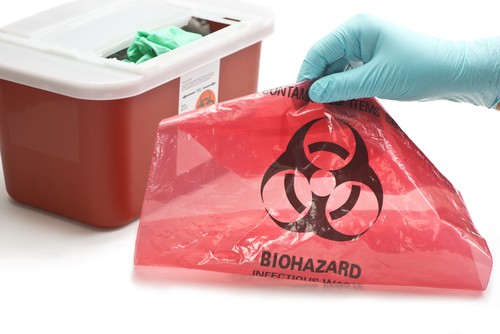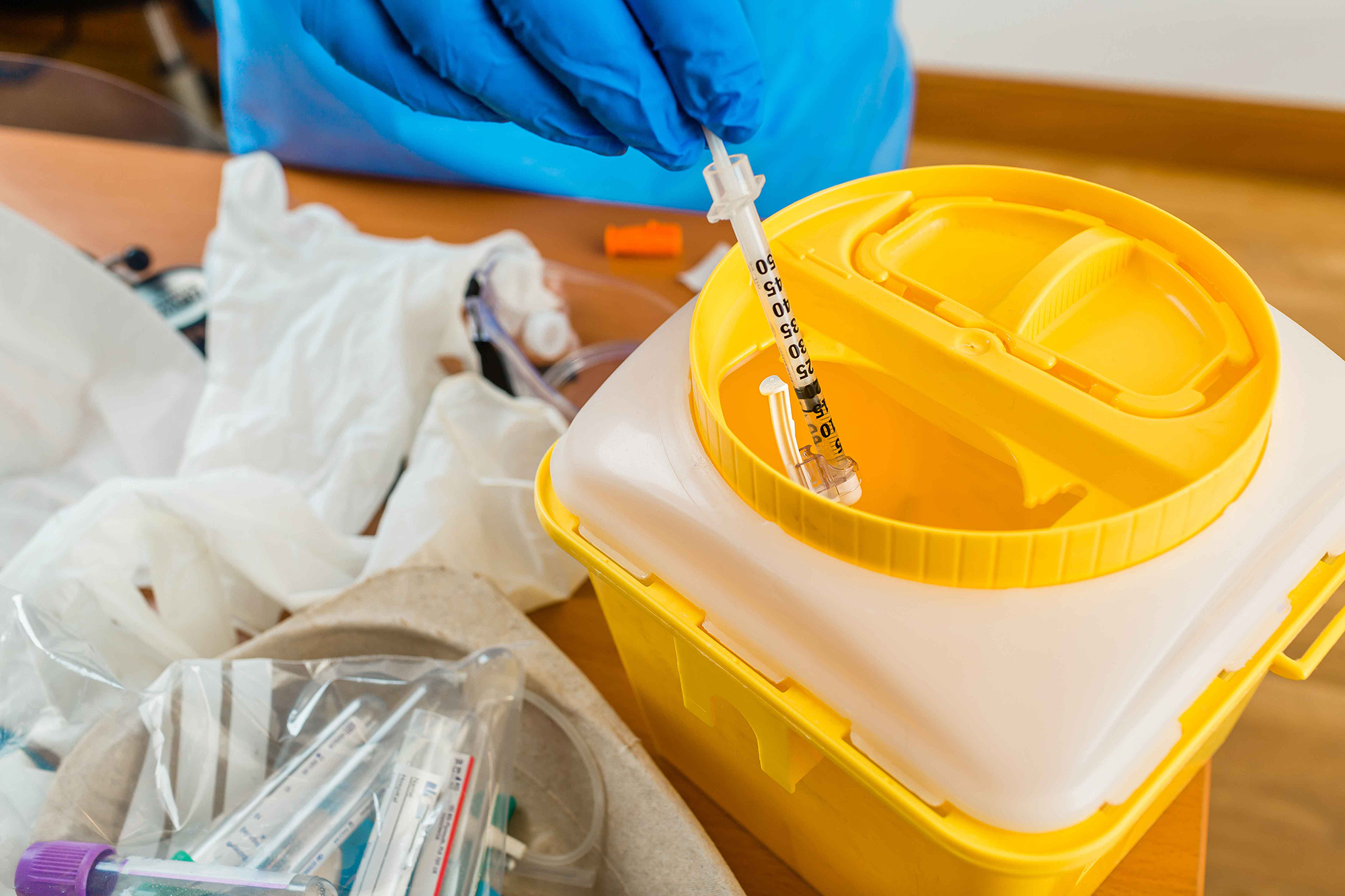Making Sure Safe Handling and Disposal of Medical Waste
Ensuring secure handling and disposal of medical waste is of critical value in health care settings. Inappropriate monitoring of clinical waste can present significant risks to the environment, public health and wellness, and healthcare employees. In this intro, we will certainly check out the value of proper clinical waste administration, the dangers associated with improper handling and disposal, as well as the standards and techniques that can be applied to ensure its safe disposal.
Relevance of Appropriate Medical Waste Management
Proper clinical waste administration is of utmost relevance in making sure the safety and security and health of healthcare professionals, individuals, and the general public. Medical waste describes any waste created by healthcare centers throughout the diagnosis, therapy, or immunization of humans or animals. This waste can position serious wellness dangers otherwise managed and taken care of appropriately.
Among the main reasons appropriate clinical waste management is essential is to stop the spread of contagious conditions. Clinical waste, such as used needles, contaminated dressings, and biological materials, can bring harmful microorganisms. If not dealt with and gotten rid of appropriately, these virus can be transmitted to healthcare employees, patients, waste handlers, and even the basic public, resulting in the potential outbreak of conditions.
Additionally, correct clinical waste administration helps shield the atmosphere - medical waste removal service. Clinical waste contains hazardous materials, including chemicals, pharmaceuticals, and radioactive compounds. When not handled appropriately, these materials can infect dirt, water bodies, and the air, presenting a substantial risk to environments and public health and wellness
Additionally, effective clinical waste management guarantees compliance with regional laws and worldwide criteria. Federal governments and governing bodies have developed procedures and standards to make certain the secure handling, storage space, transportation, and disposal of clinical waste. Sticking to these laws is crucial to avoid lawful effects and keep the reputation and integrity of healthcare centers.
Risks of Improper Handling and Disposal

Clients can likewise be subjected to these transmittable diseases if medical waste is not properly gotten rid of. If contaminated needles or other sharps are not disposed of in marked puncture-proof containers, they may accidentally prick individuals, leading to prospective infections. Furthermore, if medical waste is not segregated appropriately, there is a threat of cross-contamination in between different sorts of waste, more increasing the opportunities of condition transmission.
Incorrect disposal of medical waste can likewise have detrimental effects on the setting and the public. If clinical waste is not treated and taken care of properly, it can contaminate water resources, dirt, and air, causing the spread of contaminants and diseases. This can have lasting consequences on environments and public health.
Standards for Safe Handling of Medical Waste
Implementing efficient methods for the risk-free handling of clinical waste is necessary in ensuring the protection of health care specialists, patients, and the basic public. These standards are critical in decreasing the risks connected with the handling and disposal of clinical waste, such as infections, injuries, and ecological air pollution.
Firstly, healthcare facilities should establish a detailed waste monitoring plan that adheres to regional, national, and international guidelines. This strategy ought to consist of clear guidelines on waste segregation, packaging, transportation, storage space, and labeling. It is essential to separate various sorts of waste, such as sharps, infectious materials, pharmaceuticals, and non-hazardous waste, to stop cross-contamination and advertise safe disposal.
Additionally, health care workers must get extensive training on correct waste handling strategies. They need to be informed on the possible hazards of clinical waste, the ideal usage of individual protective equipment (PPE), and the proper procedures for managing, transporting, and taking care of various sorts of waste.
Furthermore, health care facilities ought to consistently check and investigate their waste management techniques to make sure compliance with guidelines. This includes performing normal inspections, reviewing waste handling procedures, and providing feedback and training to personnel.
Reliable Methods for Garbage Disposal
To ensure the safe handling and disposal of clinical waste, it is necessary to use reliable approaches for garbage disposal. Clinical waste can position significant threats to public wellness and the environment otherwise managed and dealt with properly. Consequently, health care facilities and waste management companies should implement ideal approaches to minimize these dangers.
It entails separating various types of clinical waste based on their features. Healthcare centers should supply clear standards and training to personnel members on how to segregate waste appropriately.

Additionally, health care facilities must work together with qualified waste monitoring companies to guarantee appropriate disposal of medical waste. These companies have the expertise and tools required to safely dispose and handle of medical waste in compliance with guidelines and finest methods.
Training and Education for Health Care Professionals
Healthcare specialists play an important role in making certain the risk-free handling and disposal of medical waste with detailed training and education. It is important for doctor to have a deep understanding of the prospective threats related to clinical waste and the appropriate protocols for its management. By receiving proper training, medical care specialists can lessen the prospective transmission of infectious illness, stop environmental contamination, and shield both themselves and the basic public.

Furthermore, training programs ought to stress making use of individual safety equipment (PPE) and appropriate hand health methods when dealing with medical waste. medical waste disposal service. Healthcare professionals must know just how to appropriately use and dispose of PPE to protect themselves from possible direct exposure to hazardous materials. They ought to likewise be enlightened on the significance of normal handwashing and the correct use hand sanitizers to minimize the spread of contagious illness
Proceeding education and routine updates on clinical waste administration techniques are crucial for medical care experts. As laws and guidelines evolve, it is important to keep doctor notified concerning any kind of changes in protocols and finest methods. This will certainly ensure that they stay updated and preserve a high requirement of security in managing and getting rid of of medical waste.
Conclusion
In final thought, appropriate handling and disposal of medical waste is vital to make sure the safety and security of medical care specialists, people, and the environment. Overlooking to follow policies and guidelines can result in numerous risks and threats. Executing reliable methods for garbage disposal and offering suitable training and education and learning for medical care specialists are crucial in maintaining a safe health care atmosphere. By adhering to these practices, we can minimize the potential risks related to medical waste.
Clinical waste Related Site refers to any waste created by health care facilities throughout the diagnosis, therapy, or immunization of humans or pets. If medical waste is not set apart properly, there is a risk of cross-contamination in between different kinds of waste, more raising the possibilities of condition transmission.
It is important to divide different types of waste, such as sharps, infectious products, pharmaceuticals, and non-hazardous waste, to stop cross-contamination and promote risk-free disposal. WasteX Medical Waste Disposal.
To ensure the risk-free handling and disposal of clinical waste, it is vital to use effective methods for waste disposal. Additionally, healthcare facilities must develop a regular waste collection and transportation timetable to prevent waste buildup and lessen the danger of crashes or contamination.